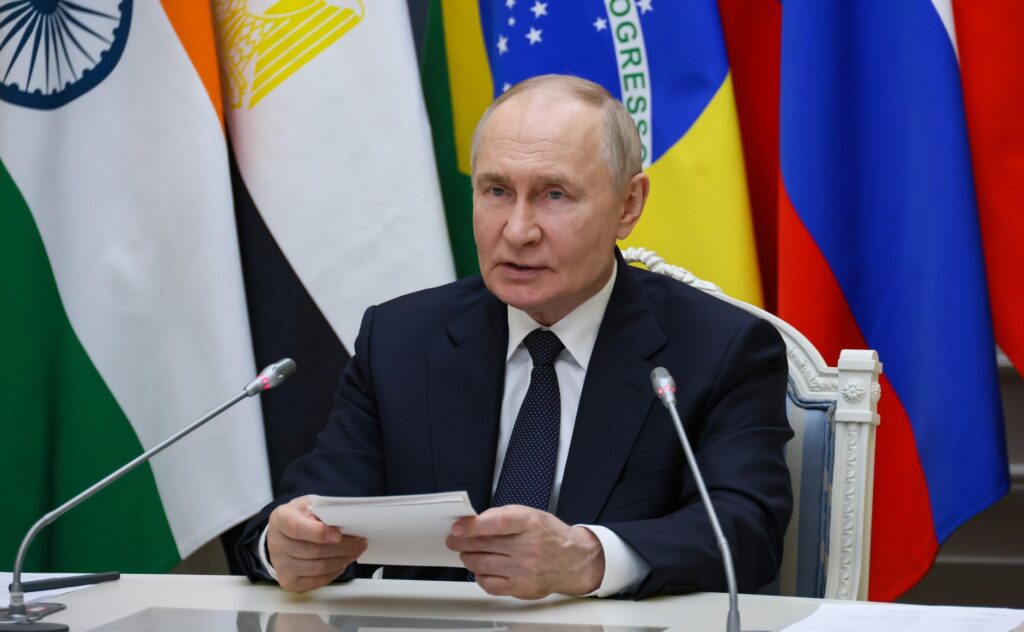RIO DE JANEIRO (Realist English). Russian President Vladimir Putin called for stronger integration among BRICS nations and greater independence from Western-dominated systems during the main plenary session of the 17th BRICS Summit, held under Brazil’s chairmanship in Rio de Janeiro. Participating via videoconference, Putin emphasized that the bloc — now expanded to include key nations from Eurasia, Africa, the Middle East, and Latin America — represents a powerful force for a more just and multipolar world.
“Our grouping continues to deepen cooperation in politics and security, economy and finance, culture and humanitarian ties,” Putin said. “Together, we hold enormous political, economic, scientific-technological, and human potential.”
Citing IMF data, Putin noted that BRICS now accounts for 40% of global GDP and nearly $77 trillion in purchasing power parity, surpassing the G7 total of $57 trillion. The bloc, he argued, is steadily becoming one of the central pillars of global governance: “The voice of our countries in support of the true interests of the global majority is being heard more and more clearly.”
Putin praised the decision made at last year’s BRICS summit in Kazan to establish a “partner country” category, which already includes 10 states, allowing closer practical cooperation with nations across the Global South and East.
He stressed the diversity of BRICS, encompassing different development models, faiths, and civilizational traditions, but united by a shared commitment to equality, sovereignty, traditional values, and global stability. These principles, he added, are essential amid the breakdown of the unipolar world order shaped by the “golden billion” of the West.
“We are witnessing the decline of liberal globalization. Economic momentum is shifting to developing markets, unleashing a new wave of growth — particularly among BRICS members,” he said. “To seize these opportunities, we must intensify cooperation in technology, resource development, logistics, trade, and finance.”
A central theme of Putin’s address was financial sovereignty. He proposed the creation of an independent BRICS clearing and depository system to make transactions “faster, more efficient, and more secure.” He highlighted that in 2024, 90% of Russia’s BRICS trade was already conducted in rubles and other friendly currencies.
Putin also proposed launching a new BRICS investment platform aimed at increasing reciprocal capital flows through institutions like the New Development Bank, with a special focus on supporting the Global South. “We suggest developing common instruments for attracting and supporting capital within our economies,” he said.
He welcomed Brazil’s continuation of several Russian initiatives, including a WTO consultation mechanism, the development of a grain exchange, a climate research center, a permanent logistics platform, and a joint sports cooperation program. He also reiterated Russia’s proposals for a carbon market partnership, an investment arbitration center, a fair competition platform, and a tax secretariat under the BRICS framework.
To highlight the bloc’s shared cultural values, Putin invited member states to participate in Intervision, an international pop music competition set to take place in Moscow in September. The contest, he said, is meant to promote the “universal, cultural, family, and spiritual values shared by our countries.”
The summit concluded with the adoption of a joint declaration, which Putin said lays the groundwork for further collaboration “in the traditional spirit of continuity and equal partnership that defines BRICS.”
